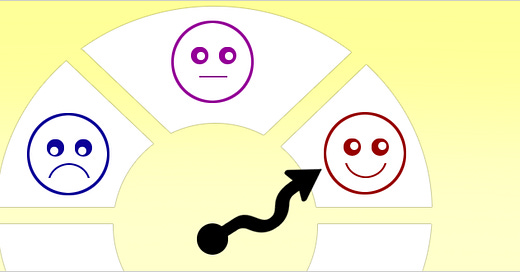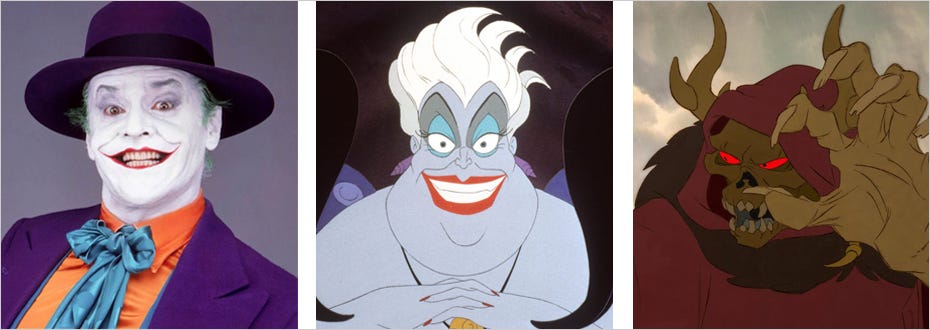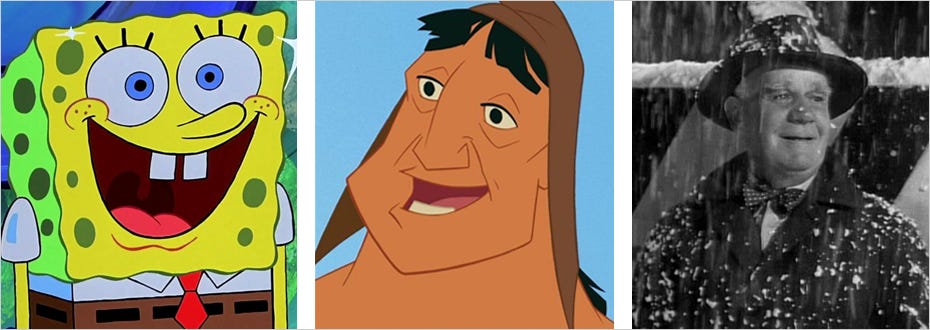On Good vs Evil or Contentment vs Anger
How To Respond Emotionally, According To The Movies
Image by L.E. Wilson from RedBubble based on work by Mohamed Hassan on Pixabay
If you are unfortunate enough to get drawn in by “the news,” an awful thing happens: the idea that there are some “evil” people in the world starts to make a lot of sense. This is why I recommend not spending too much of your time with “the news.” The simple reason is that it is not really helpful to think of others as “evil,” for how could doing so not affect the way you treat strangers? The possibility of descending into madness yourself because you are seeing evil monsters, instead of sentient beings, is real. The last thing you want to do is become vengeful and bitter, which are incidentally some of the very qualities found in classic movie villains, i.e. “evil monsters” such as:
The Joker in Batman (1989)
Ursula in The Little Mermaid (1989)
The Horned King in The Black Cauldron (1985)
In other words, what good is it to classify others as “pure evil”? The most likely outcome of doing this is grouping a wide variety of people together—including some who are completely innocent—in order to inflict some form of “justice” upon them, which would likely take the form of violence. This is the descent into madness referred to earlier.
No! If because of “the news” you find yourself seeing a side of the human race that is horrifying, which negatively affects your peace of mind, then take a break from it, and stop letting it teach you to hate others. That is wasted energy. Of course people do bad, harmful, inconsiderate things! The usefulness of “the news” is to alert you to threats so that you can be more mindful, more careful, more prudent. Once you’ve figured out what those threats are—which shouldn’t take very long or repeated viewings—you should just move on, lest you become paranoid and anxious, which are also traits found in classic movie villains, i.e. “evil monsters” such as:
Gollum in The Lord of the Rings: The Fellowship of the Ring (2001)
Prince John in Robin Hood (1973)
The Queen in Snow White and the Seven Dwarfs (1937)
But if “good” vs “evil” is not a good rubric to judge others against, then what is? I propose “contentment” vs “anger.” Why? Because contented, happy, satisfied people are unlikely to act out in monstrous violence. Meanwhile, angry people, who are really just very sad people, can indeed behave like cornered, wounded and dangerous wild animals. What is at the root of this sadness, this unfulfilled need that mutates into anger and sometimes violence? It is usually something along the lines of prolonged prior neglect or abuse. So there is a case to be made that more compassion toward angry people, rather than vengeance, is warranted.
However, for your safety, you should stay away from angry people as much as possible. Literally turn your cheek, look away, and head in the opposite direction. But above all, don’t let others make you into an angry person. Seriously question anyone who appears to be trying to make you feel vengeful and bitter, or paranoid and anxious, since this is essentially the path toward losing your humanity.
So how can you release your anger and find contentment? Get more comfortable. Relax. Here is one idea: how about watching a pleasant movie? Why? Because it turns out that physical pain or discomfort morphs into anger over time, as does emotional pain.
But the good news is that these can be alleviated. It is possible to self-soothe. It is possible to find contentment no matter your circumstance. It is possible to let go of anger, and if not forgive others, at least move on to enjoy the pleasures of life as classic movie heroes do, cheerfully and with kindness, and with goodwill toward others:
SpongeBob from The SpongeBob SquarePants Movie (2004)
Pacha from The Emperor’s New Groove (2000)
Clarence from It’s a Wonderful Life (1946)
Please join us!
Visit the moviewise catalogue—a searchable database of one sentence movie summaries, movie quotes, and movie wisdom—for movie recommendations.
Also visit the moviewise store. Get a t-shirt, bag, or pillow with your favorite #LifeLesson from a movie. Reply to this or leave a comment below to make a request.












Indeed, seeing real-life people as "pure evil" is not at all the correct thing to do; it's not charitable or nuanced. However, in movies (which are fiction, anyway) we're sometimes presented with a "pure evil" character who has no motive for their evil; I'm thinking of Heath Ledger's Joker in The Dark Night, or Anton Chigurh in No Country for Old Men. I have a theory that "pure evil" characters are more easily presented in films than "pure good" characters are; it's hard to find a movie character who is good in the fundamental, motiveless, unreasonable way that Chigurh is. There are several such characters in books--Heidi, in Joanna Spyri's novel, or Myshkin in Dostoevsky's The Idiot--but not so much in films. Perhaps because films show us actions, and books are better at showing relationships--and an evil action is more easily depicted onscreen than a good action, which derives its goodness from the relationship it happens in. What do you think?